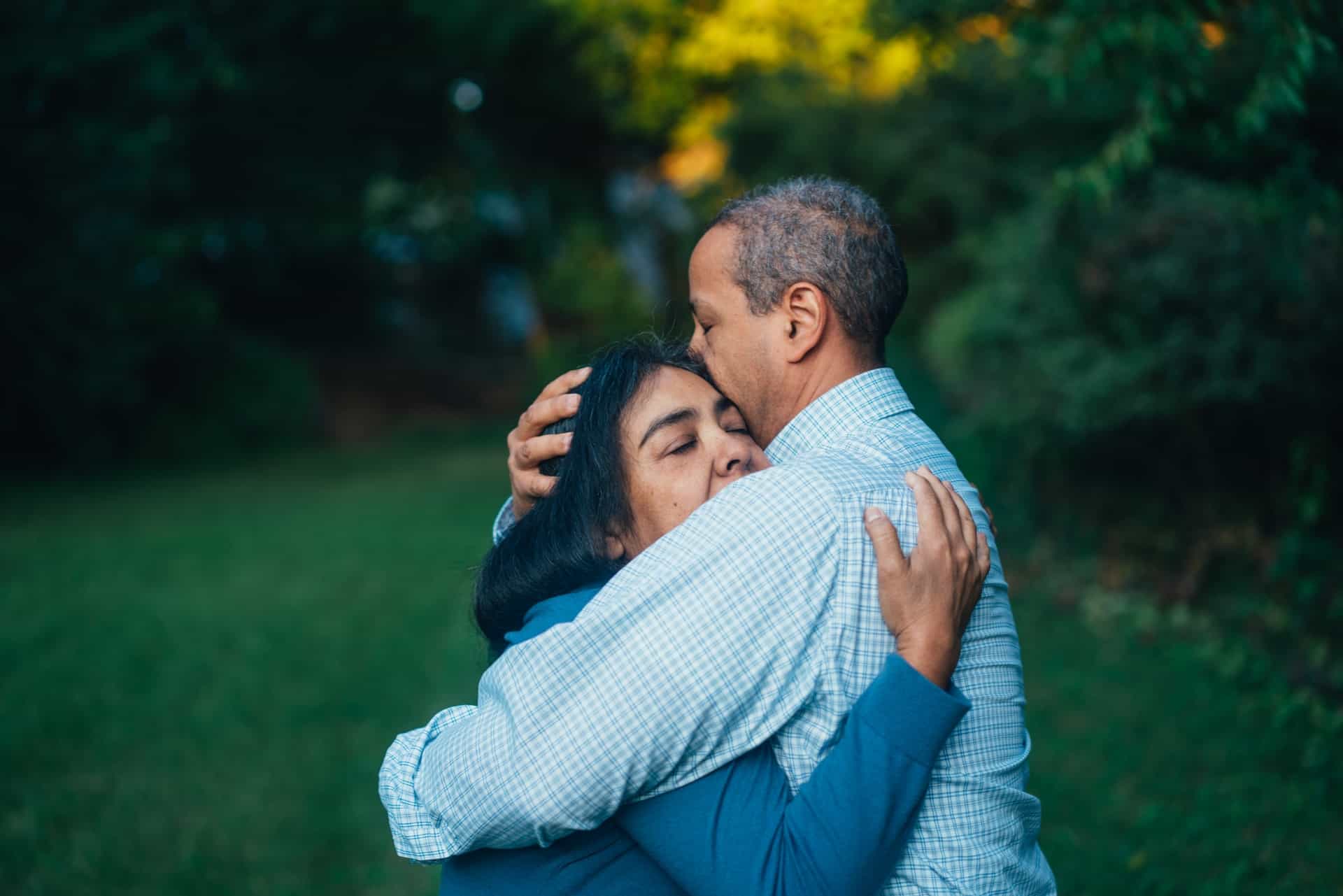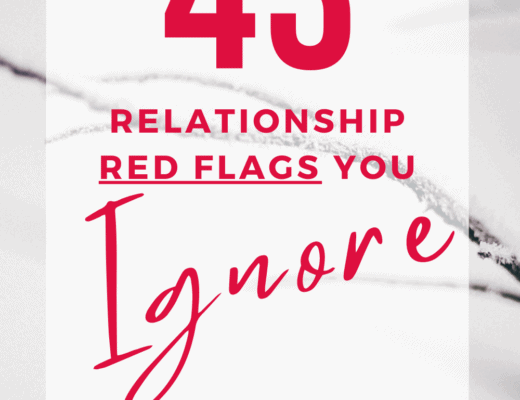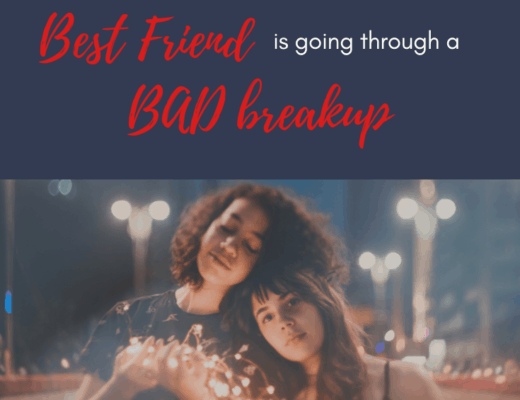Are you stuck in a toxic relationship? Do you find yourself attracted to the wrong people? Toxic relationships can feel addictive in nature and hard to break from.
When we shower our romantic partners with love, affection, and support, we expect to receive the same in return.
In fact, most, if not all of us set out on romantic relationships with the hope of living happily ever after. Except that what starts out as a healthy relationship can easily take a turn for the worse and become toxic, leaving us feeling empty, incomplete, desperate, and sad.
Some people will break free from the toxic relationship at this point but others may choose to ignore the red flags and endure emotional abuse because of the partial reciprocation of love that still exists.
Deep down, people in toxic relationships can tell that all is not well, but they do nothing about it for some reason.
This survey of 571 people reveals numerous and complicated reasons why people choose to stay in toxic relationships including kids, financial support, the need to ‘fix’ the partner, the fear of being alone, and insecurity among others.
By looking at this list, we can all agree that there’s more than meets the eye. So, is being addicted to toxic relationships really a thing? How and why does it happen? Is there a way out?
Keep reading to find out everything you need to know about toxic and addictive relationships.
Related Posts
What Is Toxic Relationship Addiction?
Toxic relationship addiction is the tendency to consciously or subconsciously engage in relationships that do not prioritize your well-being.
Although a toxic relationship drains you emotionally, psychologically, and physically, you feel hooked on to it to the extent that even when you know the relationship is bad for you, you make no effort to break free by finding reasons to stay.
It gets even worse; thinking about leaving the relationship fills you with feelings of panic and anxiety.
Any steps you take to end it trigger physical and emotional distress similar to withdrawal symptoms suffered by people addicted to chemical substances, and interestingly, you only find relief by re-establishing contact.
Addiction to toxic relationships can manifest as love addiction, relationship addiction, or trauma bond. However, the addiction pattern is the same.
Love addicts focus on one specific person and love them obsessively while a relationship addict can be preoccupied with hopping from one toxic relationship to another. A trauma bond, on the other hand, forms specifically between a victim of abuse and their abuser.

How Do You Get Addicted To A Toxic Relationship?
The addiction aspect comes from the reaction of your brain to the good times of the relationship. Where there are acts of love, care, and physical contact and especially a strong sexual attraction, pleasure and feel-good hormones are released leading to a feeling of intimacy and trust.
Since these good times happen unpredictably in a toxic relationship, your brain starts lusting for and anticipating them, leading to the production of dopamine in the brain’s reward center. Dopamine is produced when the brain is expecting a reward.
Not knowing whether the reward system will work or not builds excitement, and excitement triggers an adrenaline rush which is addictive.
Holding on to this intense feeling can cause you to rationalize the phases of emotional or even physical abuse and numb your pain as you wait for the rewarding gratification that comes during the passionate times.
When this happens repeatedly, it creates unhealthy relationship patterns that are similar to drug addiction.
According to an academic journal published by the US National Library of Medicine, it is perfectly normal to seek physical intimacy, company, and attention from the person you are in love with for the purpose of pleasure.
When the behavior, however, disregards your emotional, social, and mental health as well as your safety, then it may easily become an addiction (Sussman 2010).
Why Is It So Hard To Break From Relationship Addiction Or Trauma Bond?
Both toxic relationships and trauma bonds are characterized by episodes of love, affection, and care that create pleasurable experiences. At the subconscious level, you can train yourself to repeatedly bear the toxicity and abuse of a relationship in anticipation of the rewarding pleasure.
Why Does Someone Crave A Toxic Relationship?
A toxic relationship may feel safe and secure in the sense that it is familiar territory to certain people. This might be someone who has gone through an abusive or difficult childhood in the hands of primary caregivers, unhealed toxic relationship past, or struggles with self-esteem.
In addition, you might crave toxic relationships if you constantly put the needs of others before your own or consider yourself the fixer who can help fix toxic people.
Tips To Get Out Of Toxic Relationships
Regardless of how you end up in addictive relationships, you can still get out and bounce back. It all starts with the affirmation that you deserve better and the will to take the first step. The tips below can give you a good place to start.

1-Become Aware That The Relationship Is Toxic
Awareness quietens denial and opens your eyes to see things differently. You can now see your suffering for what it is and overcome the tendency to justify your partner’s abuse.
A great way to become aware is to ask yourself about the feelings that the relationship activates in you and even better, write them down.
If most of the time you feel drained, ignored, out of control, used, afraid, and are struggling with low self-esteem among other undesirable feelings, then the relationship is definitely toxic.
2-Explore The Root Cause Of Your Addiction And The Perks
How did you end up in that relationship? Could unresolved childhood issues have anything to do with it? Do you feel like you are so lousy at relationships that you don’t deserve better? Figuring this out can help you start getting yourself out of the toxic rut.
Sometimes, even after knowing why we are in a bad relationship, the benefits we draw from it can become good excuses to stay and derail our efforts to move forward.
Taking you back to the introduction where I mentioned some, take a pen and paper and write yours down. Are they worth the price?

3-Talk To Your Partner
This step depends on other efforts that you have made before. If you haven’t tried to talk about how you feel with your partner before, this is the time to do it, and suggest that you go through counseling together if they are willing. If after trying this you still struggle with the same toxic patterns, maybe it is time to break free.
4-Start Digging Yourself Out Of The Toxic Rut
This is a very bold and difficult step. It involves gradually detaching yourself from the object of your addiction, your romantic partner. It involves finding your own solutions for the benefits you are drawing from the relationship. If it is financial dependence, you might want to start looking for a job or a side hustle. A place to live? Start finding options, even if they are temporary, to begin with.
Kids? Yes, separation or divorce can disrupt the lives of children in numerous ways but bringing them up in a toxic family is an even greater disservice. Says Developmental Psychologist, Dona Matthews.
So, what’s your perk? Start letting go and when panic, fear, and anxiety start to hit, just remember that you are way stronger than you think.
5-Ensure That You Have A Support System In Place
A support system is made up of healthy relationships that you need for your mental health, healing, and recovery. It can include trusted friends, family members, technology, and peer support groups.
This is not only a representation of what life is outside of a toxic relationship but also a source of help when you are looking for a job, a place to stay, and encouragement after breaking free.

6-Work On Yourself
This step entails repairing what has been damaged by the addictive relationship including your self-esteem, mental health, emotional health, self-compassion, and self-love.
This is the time that you start undoing all the faulty perceptions and beliefs you have developed about yourself either on your own or as a result of how other people describe or treat you.
Notably, you will need lots of patience and willpower as the process is gradual. Engaging in activities you love or a favorite hobby, spending some time self-indulging, or even visiting new places can help you to rediscover yourself.
If you need a little push, you can try in-person therapy, online therapy, or treatment centers.
“It is so important to take time for yourself and find clarity. The most important relationship is the one you have with yourself.” – Diane Von Furstenberg, Belgian Fashion Designer
Conclusion
It is possible to be addicted to toxic relationships and to knowingly or unknowingly stay for whatever reason.
Whether you are dealing with love addiction, trauma bond, or relationship addiction, your greatest chance in breaking free lies in dealing with how you ended up here in the first place.
The good thing is that you can break free and start a new life. It all starts with loving yourself enough to believe you deserve everything that a healthy relationship has to offer before you take the necessary steps




